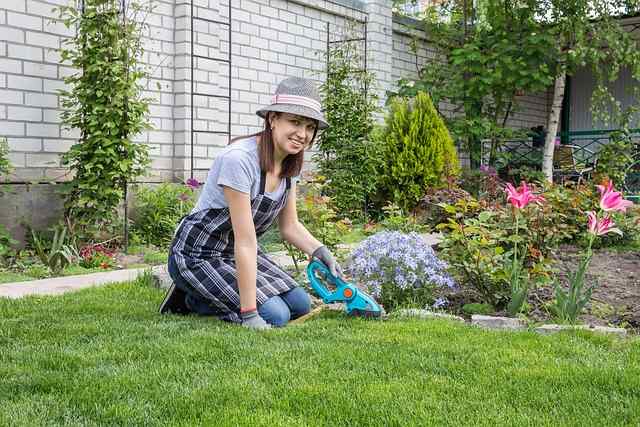Table of Contents
Introduction:
On this occasion, we are going to address an essential issue to ensure the beauty and health of our green space:
The Technical Inspection of Gardens (ITJ).
Just like any other infrastructure, our gardens need regular checks to ensure that they are kept in optimum condition.
In this article, we'll find out why a technical inspection is important, what aspects to consider and some practical tips to keep your garden radiant all year round. Let's get started!

VISIT OUR MACHINERY, TOOLS AND EQUIPMENT SECTION AND GET EVERYTHING YOU NEED TO MAINTAIN YOUR GARDEN.
1. Why is the Technical Inspection of Gardens important?
The Technical Garden Inspection is a fundamental practice to preserve the beauty and functionality of our green spaces.
By conducting regular inspections, we can detect and correct potential problems early, prevent further damage and maintain a healthy and safe garden for the whole family.
In addition, proper inspection will allow us to optimise the use of resources such as water and fertilisers, thus contributing to environmental sustainability.
2. Key aspects to be taken into account in the inspection:
- a) General condition of the plants: Observe the condition of the leaves, their colouring, possible signs of diseases or pests, and the presence of weeds that can compete with plants for nutrients.
- b) Irrigation system: Ensure that the irrigation system is working properly, with no leaks or blockages, and adjust the frequency according to the season.
- c) Soil condition: Analyse soil quality, pH, and check if it needs enrichment with compost or fertilisers to improve plant health and vitality.
- d) Structural elements: Check garden structures such as paths, fences, pergolas, and make sure they are in good condition and safe for use.
- (e) Lighting and drainage: Verify that the lighting and drainage garden lights are working properly. Check that the drainage system is clean and operational to avoid water accumulation problems.
3. Tips for maintaining an enviable garden:
- (a) Regular pruning: Perform appropriate and regular pruning to stimulate plant growth, improve plant shape and prevent possible pests.
- b) Efficient water use: Schedule watering at appropriate times, preferably early in the morning or in the evening. This helps to minimise evaporation and water wastage.
- c) Responsible fertilisation: Use organic fertilisers and apply the right amount so as not to overload the soil or pollute the environment.
- d) Mulching: Mulch the soil to conserve moisture, reduce weed growth and improve soil structure.
- e) Professional advice: Whenever you have doubts or more complex problems, do not hesitate to consult a gardening specialist. Professionals in the sector can provide you with guidance and specific solutions for your garden.
Conclusion:
The Technical Garden Inspection is an essential process to maintain a beautiful and healthy green space.
In this way, by taking the time to check and care for our garden, we can enjoy its aesthetic and environmental benefits all year round.
Also, remember that prevention and responsible maintenance are the key to an enviable garden.
So don't wait any longer and start planning your next technical inspection to keep your natural corner in perfect condition!

